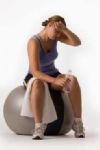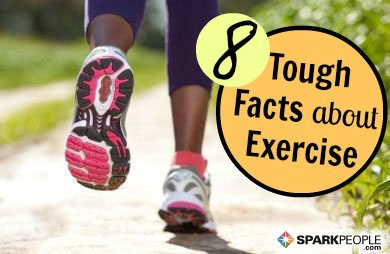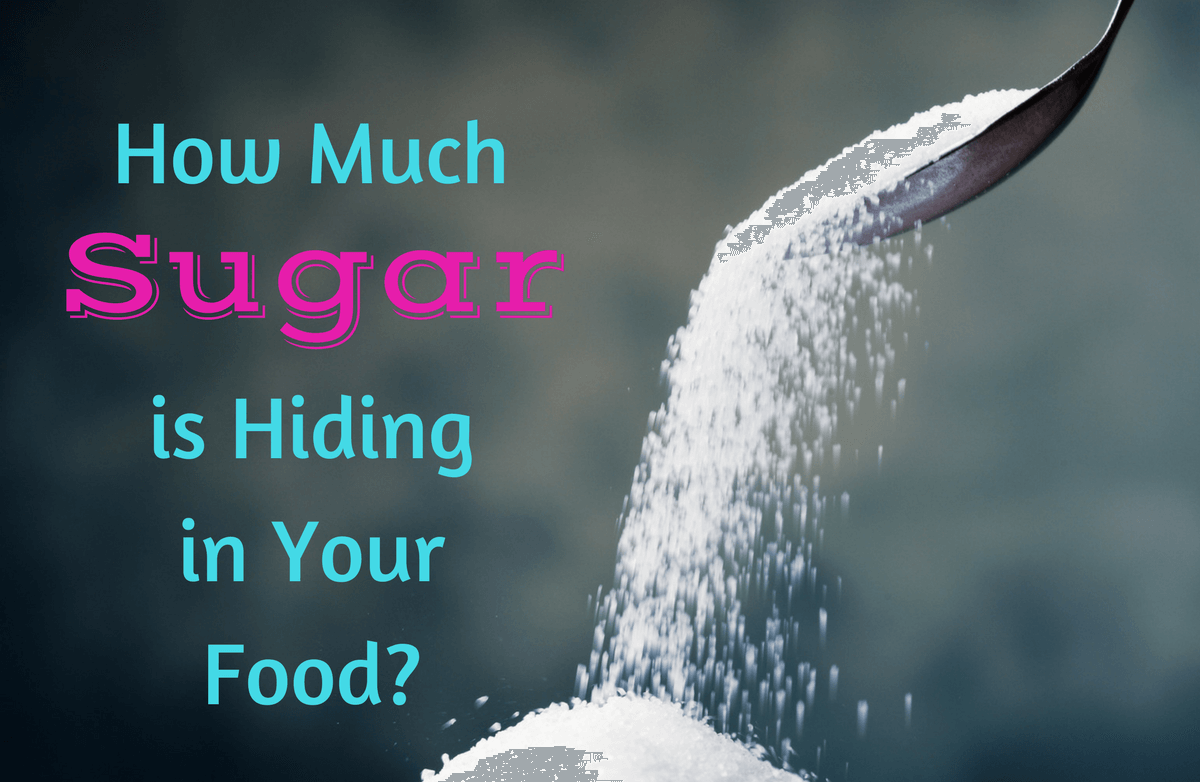|
Editor's Note: Cathy Cram, M.S., is the resident maternal fitness expert on our sister site, BabyFit.com. By Cathy Cram, M.S. This second blog in a three-part series on treatments for menopausal hot flashes focuses on alternative options. This blog topic has been a challenging one to write, as alternative treatments don’t provide a traditional model for applying clinical research results in order to determine how effective a treatment or drug is on a condition. As I’ll discuss later, there are several confounding issues that make it difficult to be able to present clear pros and cons for alternative treatments based on past studies. As you read through this blog keep in mind that I’ve tried to give you the most accurate overview on each treatment as possible, but these brief conclusions are by no means the last word on the benefits and risks of these hot flash treatments. For more information on current research being done on these and other alternative hot flash treatments check out the resources section at the end of this blog. Herbal Treatments Herbal medicine is based on the use of plants as remedies for a wide range of conditions. Herbal supplements (containing either one or several herbs or mixed with other ingredients) are available from health food stores, alternative healthcare professionals, pharmacies, herbalists and the Internet. As such, the range of potency, ingredients, quality and price can vary greatly. In the US, there is very little regulation on alternative medications, making it difficult to be able to quantify through research that a particular herb or compound has a positive (or negative) treatment effect. The lack of standardization and regulation makes it difficult to determine just how much of an herb or supplement is contained in a product, or if there are additional unlisted ingredients. Another misconception is that any herb or supplement termed “natural” is synonymous with “safe.” There have been many instances of herbal products and vitamin supplements causing serious side effects in some individuals, so do some homework before you try any product, compound or treatment for your hot flashes. Remember that anything you ingest has the potential to help or hurt you, and may interact with medications you currently use. Many women have found that working with a licensed, alternative medicine professional is the most effective and safe way to get relief from their menopausal symptoms. I spoke with Anne Marie Fine, NMD, a board certified naturopathic physician about what someone should look for when seeking alternative healthcare treatment. Dr. Fine recommended going to the website www.naturopathic.org to find a naturopathic physician (someone who has been trained as a primary care physician, but also has received broad based training in natural therapeutics). Dr. Fine uses alternative hot flash treatments in her practice, but stresses that each woman’s needs are unique, so the prescribed individual treatment progression is based on each patient’s specific symptoms and response to the prescribed compounds. Dr. Fine also feels it’s important to know the source of your herbs, and she underscores the need for practitioners to use herbs from professional lines that meet Good Manufacturing Practices and are tested for purity and consistency, and processed under strict facility sanitation guidelines. She feels the using these types sources allows her to know exactly what amount of herb is in her preparations as well as the quality of her products. Black Cohosh There are several types of Black Cohosh available, as well as a product called “RemiFen” that contains 20 mg of Black Cohosh Extract in each capsule. This herb has been used for a variety of conditions, including menopausal hot flashes. A large Herbal Alternatives study (HALT) that looked at the use of Black Cohosh alone and with other botanicals, did not find any difference in the number of daily hot flashes or night sweats in any of the herbal supplement groups as compared to placebo group. A Database of Abstracts of Reviews of Effects (DARE) done in 2011 concluded that the evidence from the studies doesn’t consistently show a significant effect from the use of Black Cohosh on hot flashes, but suggests more research is needed. There have been other studies that have showed a decrease in hot flash frequency with the use of Black Cohosh, but as with all herbal research on this topic, it’s been difficult to determine whether this herb is effective for hot flashes because of varying herb dosing and lack of well-designed studies. Chasteberry This plant has been used to treat premenstrual syndrome and is thought to have a hormone-regulating effect that may be helpful in treating menopausal hot flashes. There is little research available on the effectiveness and safety of this product, and women who have had breast cancer or other hormone-sensitive conditions should avoid this product. Dong Quai A study that looked at 71 women who had hot flashes found there was no difference in hot flash relief between those taking Dong Quai and those taking a placebo. Similar studies have also failed to find a significant reduction in hot flash symptoms with the use of this substance. DHEA DHEA occurs naturally in the body and is the substance that is used in the production of estrogen and testosterone. DHEA is also manufactured as a dietary supplement and used to treat age-related conditions. There haven’t been any studies that have shown that DHEA is effective in treating hot flashes, and the safety of this product isn’t established. There is some concern that supplemental use of DHEA may increase the risk for breast cancer. Ginseng (Panax ginseng or Panax quinuiefolius) Studies have not shown any benefit with using Ginseng in the treatment of hot flashes, but there is some evidence that this product may help with mood state. Evening Primrose Oil This plant oil is used to treat menstrual symptoms such as breast pain and PMS, as well as some inflammatory skin conditions. There is no evidence in the literature that has shown Evening Primrose oil to be effective in reducing hot flashes. Hypnosis A 2008 study done with breast cancer survivors who had hot flashes found that women who took part in weekly hypnosis sessions had a 68% reduction in hot flashes per day compared with controls. In addition, the hypnosis group had a significant improvement in their sleep and reduced anxiety and depression levels. Homeopathy Homeopathy uses a minute, diluted amount of an active ingredient to treat a specific condition. There’s little quality research that’s looked at the use of homeopathy for hot flashes, and what studies have been done show no difference in results using homeopathy versus placebo. Phytoestrogens Phytoestrogens are plant based estrogen-like compounds that have been used in the treatment of hot flashes. The type of phytoestrogen that has shown promise in the treatment of menopausal symptoms is the isoflavone group found in soybeans, soy products and red clover. There have been numerous studies on the use of isoflavones in the treatment of hot flashes with some showing benefit and others none, but confounding results make it difficult to determine whether the use of isoflavones is beneficial and safe for long-term use. Red Clover The flowers from this plant are used to make extracts that can come in tablet or capsule, tea or liquid form. There have been mixed results in the studies looking at Red Clover and hot flash treatment, and it’s been concluded at this time that red clover doesn’t have any significant value on its own as a menopausal treatment. Red Clover contains estrogen-like compounds, so women who have had reproductive organ or breast cancers should consult with their healthcare provider before using this herb. Acupuncture Acupuncture uses fine needles placed in specific areas of the body to help relieve a wide range of physical and emotional conditions. Some practitioners use a form of acupressure, (using the fingers to apply pressure to areas of the body instead of needles) and both techniques have been used to help reduce hot flashes. Most studies on acupuncture and hot flashes have shown conflicting results. A recent meta-analysis (an analysis of several similar studies to determine whether the combined results show a significance effect) failed to find beneficial effects of acupuncture when compared with placebo for hot flashes. The bottom line concerning alternative hot flash treatments is that more research is needed in this area. The following are the main issues concerning alternative treatment research outcomes:
Lastly, the most important factor to consider if you decide to use alternative treatments is to seek the guidance of a Naturopathic physician who uses a whole-body approach. It takes a combination of education, experience and expertise to effectively and safely use alternative treatments, so don't risk your health by trying to navigate this field on your own. Resources: American Association of Naturopathic Physicians American Psychotherapy and Medical Hypnosis Association Journal of Alternative Medicine Review National Center for Complementary and Alternative Medicine Catherine Cram, M.S. is the author of Fit Pregnancy For Dummies, and the owner of Comprehensive Fitness Consulting, LLC. Catherine’s company specializes in providing prenatal postpartum fitness information to health-care professionals. Have you tried any of these remedies? |
More From SparkPeople
|





















